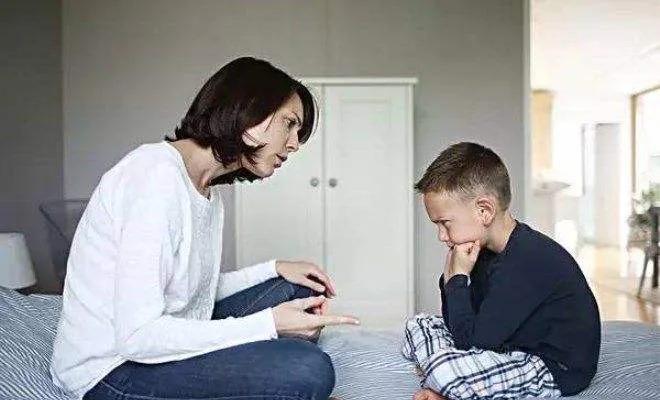My aunt called me, and my cousin had recently had something wrong at school, which made her anxious.
She cried and said to me, this child from small skin to adulthood, I don't know how much beaten, how much scolding, but it is useless, now adolescence, it is even more impossible to manage, in the end what is the problem?

I didn't try to reason with her, because I know that many of their generation have the idea of "filial piety under the stick", they were beaten when they were young, and now they are parents, and they also use their parenting style, teaching them scientific parenting methods, which is difficult for them to accept and digest.
I can only suggest to her that the child has entered puberty and is more rebellious, and since the scolding has not worked, it is better to try to communicate with him well, let him feel your concern for him, and maybe ease the relationship.
But I still hope that more young parents can accept the scientific concept of parenting, and when their children are young, they can slowly establish a harmonious and loving parent-child relationship with their children and deal with problems, rather than using scolding to solve everything.
Empathy, if we are beaten by others and scolded by others, will we establish good feelings and relationships with that person?
Obviously not.
Children are the same, although they are their own parents, but long-term scolding will also push the child farther and farther away, and the child will not open his heart to his parents.
When the child is young, mischievous, many times it is not subjective and deliberate to run into trouble, may just feel funny.
Wise parents will take these situations as a good educational opportunity, rationally communicate with their children, tell their children whether they are right or wrong, and slowly grow and mature in this experience, cultivate mature three views, and always maintain an intimate relationship with their parents.
On the contrary, some parents directly characterize their children, and even verbally insult children and physically punish children, and slowly the children's views on themselves may really become what their parents say, breaking cans and breaking down, and slowly becoming estranged from their parents.
When the child makes a mistake, do not come up and scold the child, you can try to say these four sentences to the child, the effect may be much better than scolding.
1, child, are you scared?
Putting care for the child in the first place can quickly eliminate the child's inner fear and close the distance with the child.
After the child makes a mistake, he will be nervous and afraid, if the parents come up to indiscriminately scold the child, then the child's first reaction to a similar situation in the future is to escape and argue, in order to escape punishment.
On the contrary, parents put their children first, let children feel the care of their parents, then the children will be more relaxed in their hearts, and they will have more confidence to face problems, and will not rack their brains in order to escape punishment.
2. Child, what happened?
Children's trouble, may be caused by the child's reasons, may not be, parents should not only look at the results, but also look at the process, do not only listen to others, the most important thing is to listen to the child.
Willing to listen to the child's voice and believe in the child is the greatest confidence that parents give to their children.
We must let our children know that no matter what happens, parents believe in me and support me, and this confidence is the biggest spiritual motivation for children to face setbacks in life in the future.
3. Child, how do you think this matter should be handled?
Parents can't always help their children take care of everything, and children always have to learn to deal with problems and take responsibility on their own.
After the child's disaster, parents should not rush to clean up the aftermath, but should take this matter as an opportunity to slowly cultivate the child's sense of responsibility and way of thinking to deal with the problem.
Perhaps at the beginning, the child's way of dealing with it will be immature and imperfect, but as the child grows up and the experience slowly increases, his way of dealing with problems will slowly mature.
4, child, if you encounter similar things in the future, what do you want to do?
Every experience is a valuable asset, parents should guide their children to learn from the things they have experienced, have reflection and thinking, this mode of thinking can also benefit children in future learning and life for life.
The same in the face of children's trouble, scolding, helping the aftermath, it is indeed possible to eliminate the negative impact of this matter more quickly, but in the long run, there is no help for the growth of children.
From the child's point of view, patiently communicate and guide the child to think, you can turn bad things into steps for the child's progress.